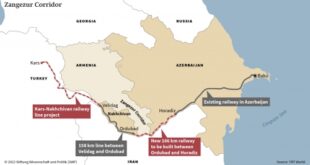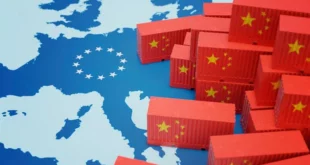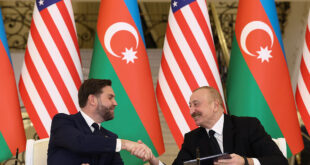Russia issued an official protest to the US ambassador to Moscow, alleging that a seminar held in Washington last week on Russia’s troubled north Caucasus region had included incitements to terrorist acts in Russia.Â
Â
William Burns was handed a protest note by Sergei Kislyak, Russia’s deputy foreign minister, over a seminar held by the Jamestown Foundation, a US thinktank, the foreign ministry said in a statement. Jamestown rejected the allegations as a “complete distortionâ€.Â
Â
The incident highlighted the tensions between Moscow and Washington as the US sharpens its tone over Russia’s democracy and human rights record ahead of the summit of the Group of Eight industrialised nations, to be hosted by Russia in St Petersburg in July.Â
Â
It also came a day after a controversial law tightening regulation of non-governmental organisations took effect in Russia. The law was toned down after an initial draft was criticised by foreign governments including the US. But human rights groups say it still gives the Russian authorities powers to close down any non-profit group whose activities they disapprove of.Â
Â
Russia’s foreign ministry said the seminar held last Friday had “provided a platform for calls to carry out new terrorist acts on Russian territoryâ€.Â
Â
The seminar included a discussion of events in Nalchik, capital of the north Caucasus republic of Kabardino-Balkaria, and scene of an attack last October by militants linked to rebels from the breakaway Chechnya region. Russia said the meeting contradicted the US’s obligations under international resolutions on counter-terrorism.Â
Â
“Such tolerance by Washington for Chechen warriors and separatists goes against the spirit of partnership in anti-terrorist cooperation by both countries and harms bilateral relations,†it added.Â
Â
The protest followed critical coverage of the meeting by Russian television over the weekend.Â
Â
Glen Howard, president of Jamestown, said Russian TV had distorted what was said at the seminar, and he dismissed the accusation that it had contained incitements to terrorism.Â
Â
Recent months have seen a clampdown by the Kremlin on foreign NGOs, blamed by senior Russian officials for helping foment pro-democracy revolutions in neighbouring Ukraine and Georgia. Nikolai Patrushev, head of the FSB, the KGB successor body, told Russia’s parliament last summer many NGOs were fronts for foreign intelligence, a few months before law-makers began debating the new NGO law.Â
Â
A spying scandal in January in which four UK diplomats were alleged to have gathered intelligence from Russian agents via a radio transmitter hidden in a rock was also seen as part of the anti-NGO campaign. One of the diplomats was responsible for signing legitimate grant payments to non-profit groups – allowing Russian television to present the case as confirmation of claims that many NGOs were funded by foreign security services.Â
 Eurasia Press & News
Eurasia Press & News



